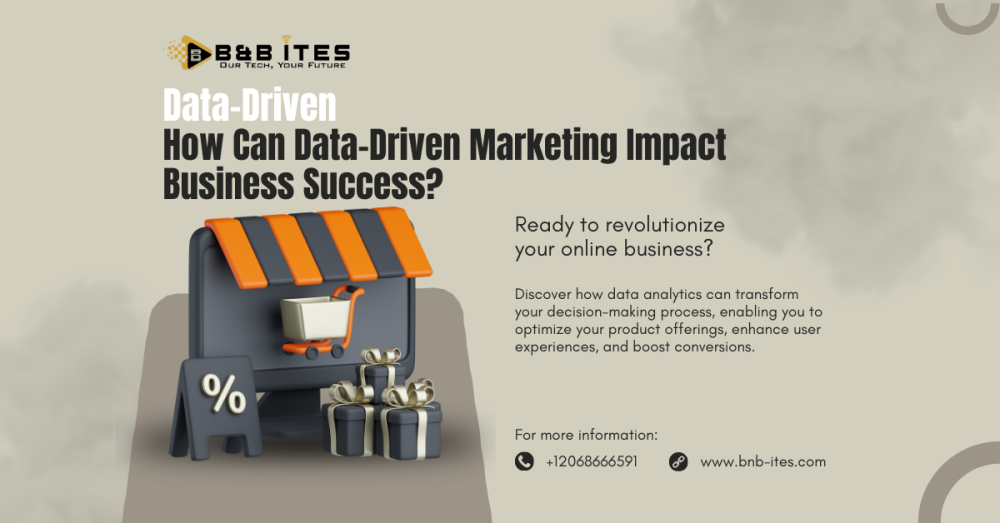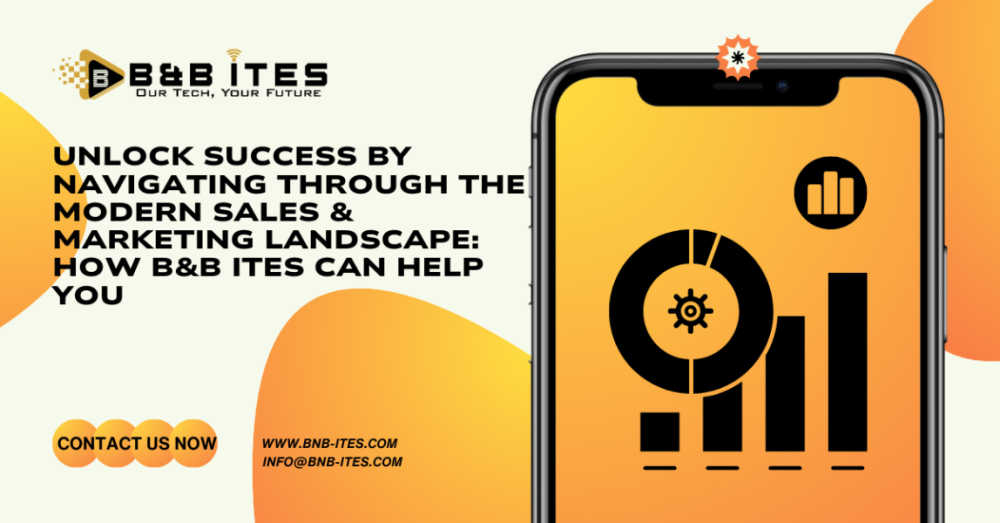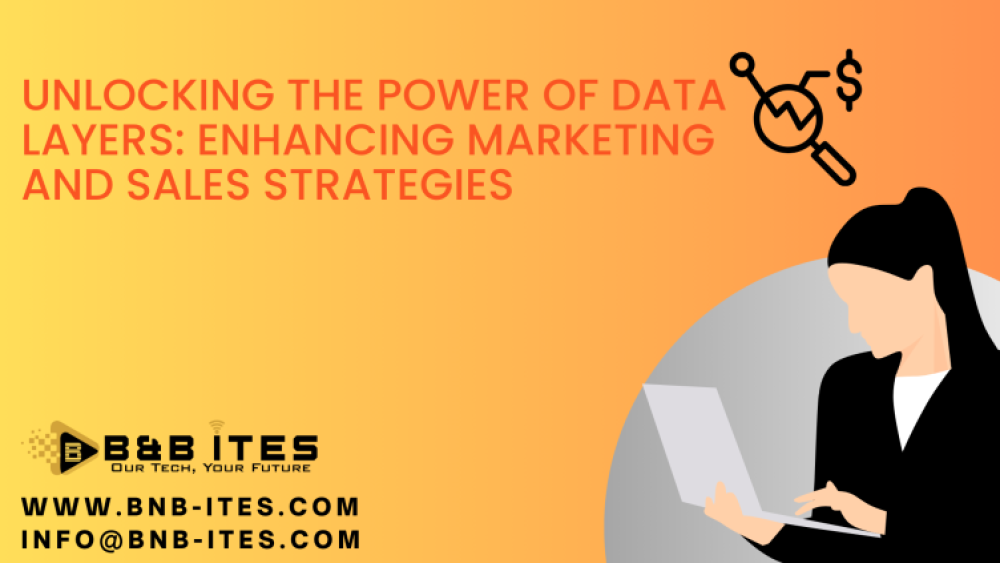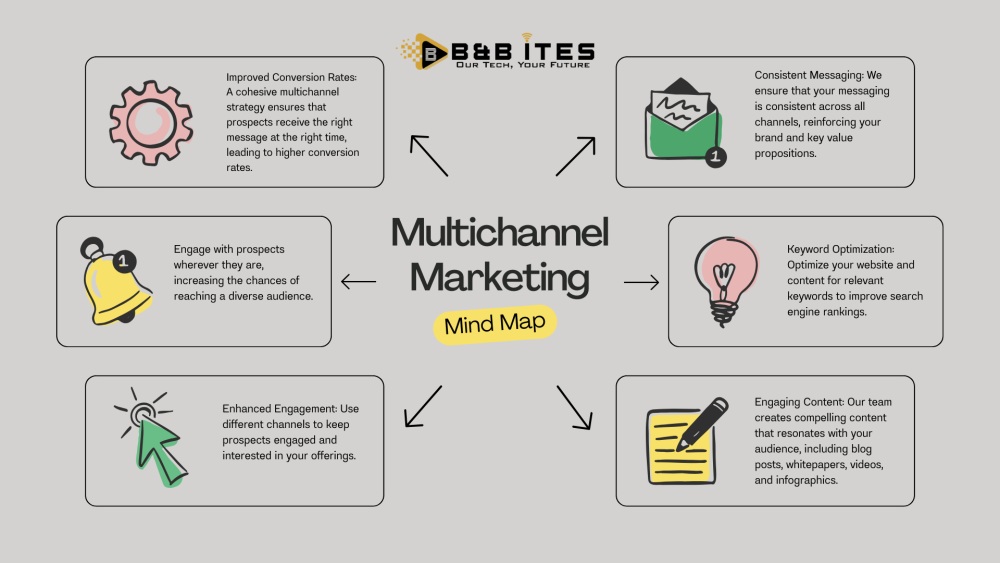How Can Data-Driven Marketing Impact Business Success?

At B&B ITeS, we help businesses harness the power of data to drive marketing success. If you’re ready to implement data-driven strategies and take your business to the next level, get in touch with us today!
In today's fast-paced digital landscape, businesses are constantly searching for ways to stand out and drive growth. One of the most effective strategies to achieve this is data-driven marketing. By leveraging data to inform marketing decisions, businesses can create highly personalized, targeted campaigns that resonate with their audience. But how exactly does data-driven marketing impact business success? Let’s explore the key benefits and how they contribute to overall growth.
1. Enhanced Personalization and Customer Experience
Consumers today expect personalized experiences. They want brands to understand their preferences and needs. Data-driven marketing allows businesses to collect and analyze data from various sources—such as customer behavior, purchase history, and interactions across channels. This information helps create highly personalized content and offers tailored to each individual.
For instance, an eCommerce company can use data on a customer's browsing history to recommend products they're likely to be interested in, enhancing the overall shopping experience. Personalization builds trust and strengthens customer relationships, increasing customer retention and lifetime value.
2. More Effective Targeting and Segmentation
One-size-fits-all marketing campaigns are a thing of the past. Data-driven marketing enables businesses to segment their audience based on specific criteria, such as demographics, interests, or behavior. This means you can craft targeted campaigns for each group, increasing the relevance of your message and boosting engagement.
For example, a travel agency could use data to identify customers who have previously shown interest in adventure vacations and target them with relevant offers. This level of targeting helps reduce wasted ad spend and ensures that marketing efforts are focused on the right audience.
3. Improved Decision-Making and ROI
With access to real-time data, businesses can make more informed decisions about their marketing strategies. Data provides insights into what’s working and what isn’t, allowing for quick adjustments. This agility is essential in today’s competitive market, where trends and consumer behavior can shift rapidly.
By tracking key performance indicators (KPIs) such as click-through rates, conversion rates, and customer acquisition costs, businesses can optimize their marketing campaigns to achieve a higher return on investment (ROI). Data-driven insights also help allocate resources more efficiently, ensuring that marketing budgets are spent in areas with the highest potential for success.
4. Predictive Analytics for Future Trends
One of the most powerful aspects of data-driven marketing is the ability to use predictive analytics. By analyzing historical data, businesses can forecast future trends, anticipate customer needs, and develop strategies to stay ahead of the competition.
For example, a retailer could use data on seasonal shopping patterns to predict demand for certain products and adjust their inventory and marketing efforts accordingly. Predictive analytics not only helps in planning but also enables businesses to seize opportunities and mitigate risks before they occur.
5. Enhanced Customer Loyalty and Retention
Data-driven marketing plays a crucial role in fostering customer loyalty. By understanding customer behavior and preferences, businesses can engage with their audience in a more meaningful way, leading to long-term relationships. Loyalty programs, personalized email marketing, and targeted promotions are just a few examples of how data can be used to keep customers engaged.
In addition, data helps identify at-risk customers, allowing businesses to implement retention strategies before customers churn. By consistently delivering value and personalized experiences, businesses can increase customer loyalty and reduce acquisition costs.
6. Competitive Advantage
In today’s data-driven world, businesses that leverage data effectively have a significant competitive advantage. Companies that can extract actionable insights from data can better understand their market, identify opportunities, and outpace competitors. Data-driven marketing enables businesses to be proactive, agile, and responsive to market changes, which is essential for staying ahead in a rapidly evolving marketplace.
How to Implement Data-Driven Marketing
To unlock the full potential of data-driven marketing, businesses must:
- Invest in the Right Tools: Utilize data analytics platforms, customer relationship management (CRM) systems, and marketing automation tools to collect and analyze data effectively.
- Prioritize Data Quality: Ensure that the data you collect is accurate, clean, and relevant. Poor-quality data can lead to inaccurate insights and ineffective campaigns.
- Foster a Data-Driven Culture: Encourage a data-driven mindset across your organization, ensuring that marketing decisions are based on data rather than intuition.
- Continually Monitor and Optimize: Data-driven marketing is an ongoing process. Continuously monitor the performance of your campaigns and optimize them based on the latest data insights.
Conclusion
Data-driven marketing is no longer a luxury—it’s a necessity for businesses looking to thrive in today’s competitive environment. By leveraging data to drive personalization, targeting, decision-making, and predictive analytics, companies can enhance customer experiences, improve ROI, and gain a competitive edge.
At B&B ITeS, we help businesses harness the power of data to drive marketing success. If you’re ready to implement data-driven strategies and take your business to the next level, get in touch with us today!











